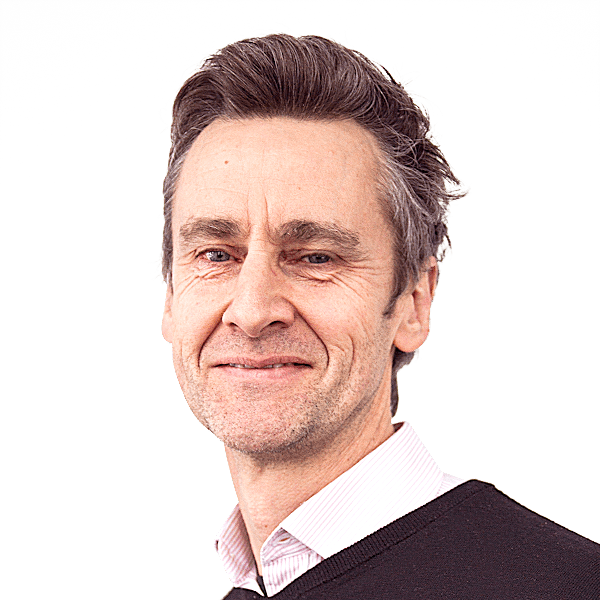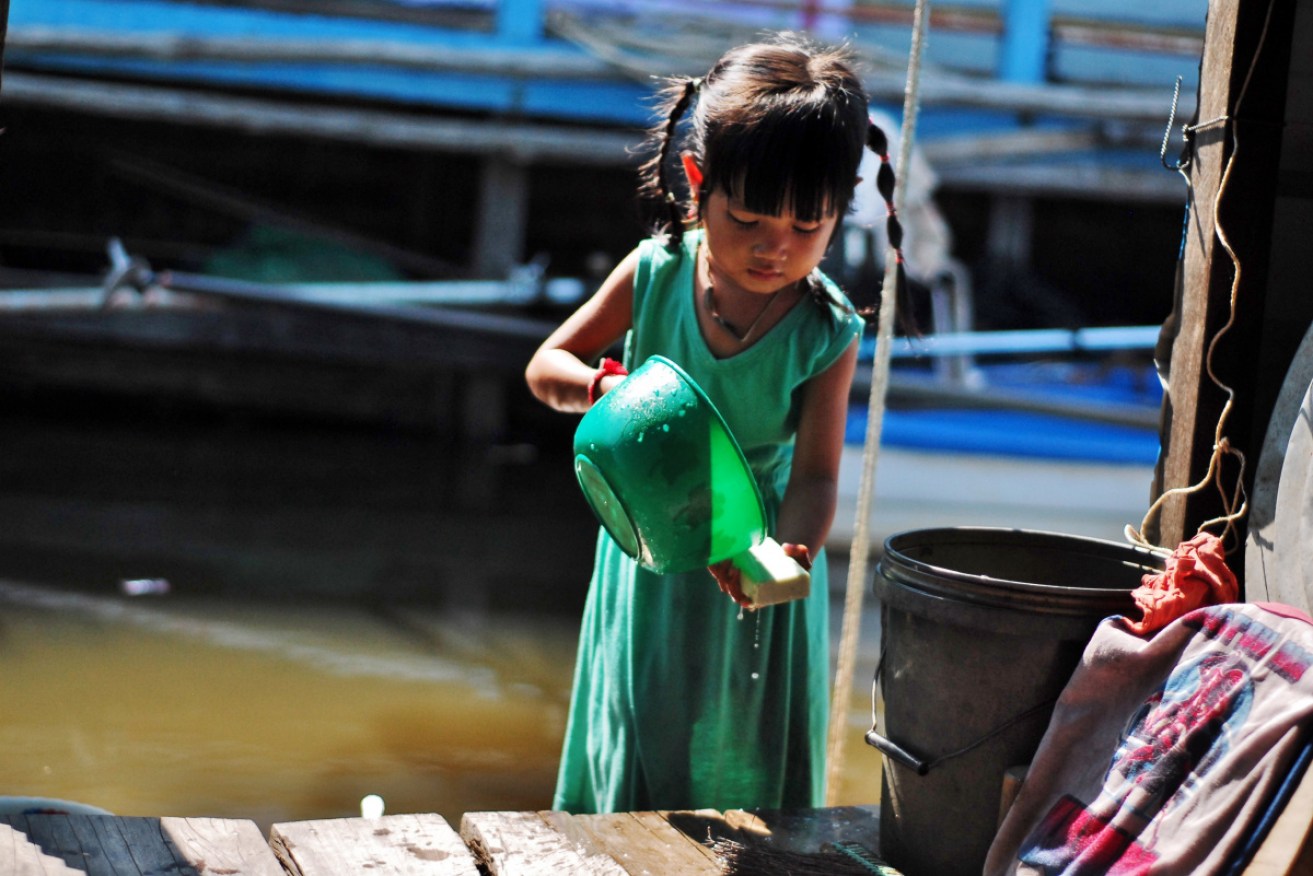The Aussie businessman ‘pedalling’ a better life for disadvantaged communities


Cambodia has received more than 150,000 bars of soap since the inception of Soap Aid. Photo: Soap Aid
Each day around the world, hotels throw out five million bars of unused or partially used soap – most of which end up in landfills.
As an executive supplying toiletries to the hospitality industry, Mike Matulick saw that waste first-hand. And one thing struck him in particular.
“So many of the bars of soap [being thrown out] still had the logos on them … they’d hardly been used,” Mr Matulick said.
Based on the Australian experience, Mr Matulick calculated that hotels worldwide are dumping five million bars a day.
“I then began to question what we could do to help alleviate that problem, the problem of all this soap being dumped in the environment.”
How could he recruit hotels to collect the used soap, return it to a central point and somehow repurpose it?
And during that thought process, he stumbled upon an even more distressing global problem – hygiene-related deaths in disadvantaged communities around the globe.
“I found out that more children die from diarrhoea than from AIDS, malaria and measles combined. This figure really stuck with me.”
The figures are as sad as they are astounding. The US Centers for Disease Control and Prevention (CDC) says 2195 children die from diarrhoea each day, equating to one in nine child deaths globally being caused by diarrhoea.
And, with 2.5 billion people (more than 35 per cent of the world) lacking access to proper sanitation, one of the keys in turning that around, the CDC says, is improved hygiene.
“So it really began as an environmental solution, but we soon realised the profound effectiveness of washing the hands as a means of improving people’s lives, something for which we could provide the soap.”
Around nine years ago, he convinced enough hotels of the worth of his idea to be able to co-found a charity, Soap Aid, which sorts, cleans and reprocesses the soap into 100-gram bars at a specialised plant in Melbourne’s bayside.
Since then, Soap Aid has diverted about 130 tonnes of soap from landfills, and produced more than a million bars of soap, delivered to 270,000 people in 12 countries – including indigenous communities in Australia.

Children at one of Soap Aid’s projects in Zambia. Photo: Soap Aid
But with a plan for more hotels to join the program, and with partner charities set up in the United States and Canada (and plans for one in India), Soap Aid has plans to expand the program from 280 hotels to more than 1200.
Mr Matulick is now on a mission to raise another $100,000 to enable the charity to produce a further one million bars for 40,000 children worldwide – something he claims has the potential to save up to 18,000 children.
To help meet that target, Mr Matulick and three other friends are about to embark on one of the most gruelling endurance events in the world, the Race Across America – a 5000-kilometre, non-stop, seven-day bike ride from one side of the US to the other.

The 5000-kilometre race is ridden over seven days. Photo: Mike Matulick
The race is 30 per cent longer than the Tour de France but done in half the time, includes around 62 kilometres of vertical climbing and can see temperatures up to 50 degrees Celsius, in the likes of Death Valley, California.
“Yes, it will be uncomfortable, but this pales into insignificance compared with the struggles of communities we help around the world,” he said.
Mr Matulick said flow-on effects of improved hygiene in disadvantaged communities goes well beyond the health benefits.
“The economic and social impact of this is huge. Just by washing hands it can kill many germs that cause disease, and by doing that, kids can attend more school, their opportunities are enhanced, parents are able to work more so household incomes improve, too,” he explained.
In Cambodia, for example, the soap is supplied to women in selected villages, which they can on-sell to families at a fraction of the retail cost of soap in that country – a price well beyond the reach of most citizens. This not only improves hygiene in the community, but also creates a micro business for those women to become more self-sufficient.
Mr Matulick and his three fellow riders begin the Race Across America on Saturday, June 15.
To donate to Mike Matulick’s ride to raise money for Soap Aid, visit the charity’s website here.








